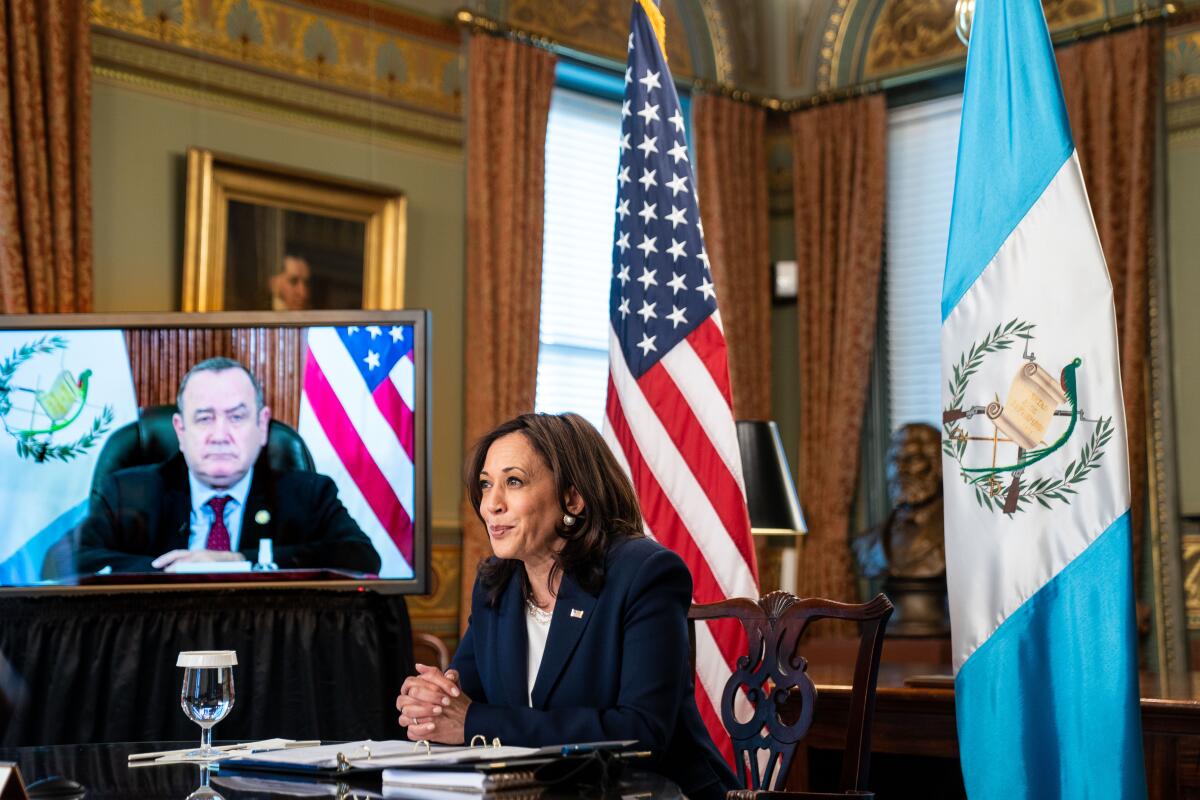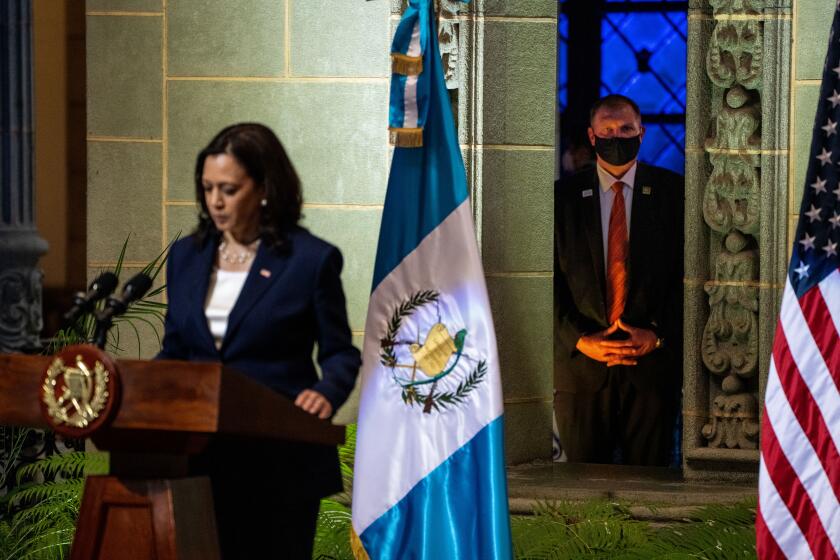Kamala Harris to announce new private investments aimed at slowing Central American migration

- Share via
WASHINGTON — Vice President Kamala Harris, eager to show progress on one of her most high-profile assignments, plans to announce on Monday $540 million in private investments in Central America as part of the administration’s plan to reduce migration from the area by improving local conditions.
The announcement, previewed by White House officials on Sunday, will bring total private commitments in the region to more than $1.2 billion since May, when Harris began soliciting companies and nonprofits to spend money in Honduras, El Salvador and Guatemala.
President Biden asked Harris in March to help curb migration from the region by addressing the so-called root causes, which include poverty, corruption, crime and natural disasters. Since then, the number of people stopped by officials near the border has hit record highs. There is debate over the causes, with many conservatives blaming lax border enforcement and the perception the U.S. has become more hospitable to migrants and asylum seekers. Many liberals point to worsening conditions in home countries and the impact of COVID-19.
Harris and experts on Central American migration have said her efforts are unlikely to yield quick results. But the large increases in migration have created political problems for Harris, even if she is not directly responsible for border enforcement or processing migrants.
Harris’ efforts to reduce corruption, at the heart of her plan, have also been set back. Guatemala’s attorney general fired the country’s leading anti-corruption prosecutor Juan Francisco Sandoval in July, just weeks after Harris visited the country and urged leaders to preserve the rule of law.
Administration officials acknowledge the laws could lead to an increase in migration to the southern U.S. border.
Harris, who had avoided visiting or speaking with leaders of Honduras and El Salvador because of concerns about government corruption there, has new hope that the incoming president of Honduras, Xiomara Castro, will make good on her promises to fight corruption. Harris called Castro on Saturday to congratulate her. White House officials, who spoke on condition of anonymity, described it as a good call and pointed to Castro’s vows to improve the economy and to better protect women in the country from violence.
Harris plans to announce the new pledges on Monday during a roundtable with corporate leaders, including Brad Smith of Microsoft, Paula Santilli of PepsiCo’s Latin American division, David MacLennan of Cargill, Guillaume Le Cunff of Nespresso and Juan Pablo Mata of Grupo Mariposa, a Guatemala-based food and beverage company.
The biggest new investment will come from PepsiCo, which plans to spend $190 million over the next four years on upgrading plants, expanding distribution routes and reducing emissions. Cargill and Parkdale Mills are each pledging $150 million for agricultural and manufacturing projects.
Microsoft, which had already promised to give 3 million people in the region internet access, will up its commitment to 4 million people and will also promise to teach digital skills to 100,000 people.
Administration officials hope investments from big companies will create more transparent business practices — including getting more people access to digital credit — and that will make it harder to hide bribes and other black market activity. They also hope the companies’ promises to pay higher wages will give people more reason to avoid the risky journey north.
But the region remains dangerous, and all three countries have initiated efforts to crack down on groups that fight corruption and promote democratic governance. One example is new registration requirements that the groups say are undermining their ability to operate free of harassment.
More to Read
Get the L.A. Times Politics newsletter
Deeply reported insights into legislation, politics and policy from Sacramento, Washington and beyond. In your inbox three times per week.
You may occasionally receive promotional content from the Los Angeles Times.













